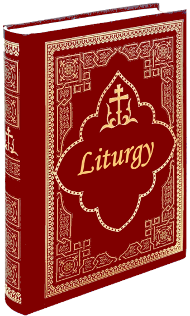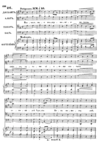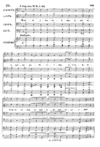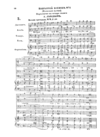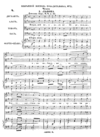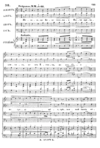Lvov, Aleksei

LVOV, Aleksei Fyodorovich (b. 25 May [5 June] 1798, Revel, today Tallin, Estonia; d. 16 [28] December 1870, estate of Roman’, near Kovno, today Kaunas, Lithuania) — began his career as a military engineer, while continuing to play the violin, which he had studied from childhood. In 1833 gained fame as the composer of the national anthem “God, Save the Tsar”; in 1834 was appointed as personal adjutant to Emperor Nicholas I. From 1837 through 1861, served as Director of the Imperial Court Chapel. As Director of the Chapel, Lvov had a marked effect on the direction of church singing in Russia. Enforcing the Imperial Decree of 1816, according to which only works approved by the Director of the Chapel could be performed at divine services, Lvov exercised strict control over the repertoire of church choirs in Russia. Under his administration, precentors’ courses were established at the Imperial Chapel, as well as a system of examinations and ranks for church precentors; each diocese in the Russian Empire was required to send candidates for training. Lvov also supervised the compilation and arrangement in four-part harmony of the Obikhod notnovo peniya [Common book of musical singing], which later came to be required throughout the entire country. In his theoretical work O svobodnom ili nesimmetrichnom ritme [Concerning free or unsymmetrical rhythm] (1858), Lvov was the first among Russian musicians to identify theoretically the possibility in choral music of rhythm determined by verbal accents rather than by a regular meter. Lvov’s compositional output bears a strong influence of the Italianate style and in particular, of early German Romanticism. In the field of church music, in addition to the Obikhod and a number of simple harmonizations of various common chants, he composed 48 works (publ. by A. Gutheil): of these 17 are composed in free rhythm, but only five are chant arrangements; 15 works have the character of “miniature” sacred concertos, while four are large-scale, multi-movement sacred concertos. In Lvov’s works the harmony, replete with chromaticism, has a marked predominance over melody.



